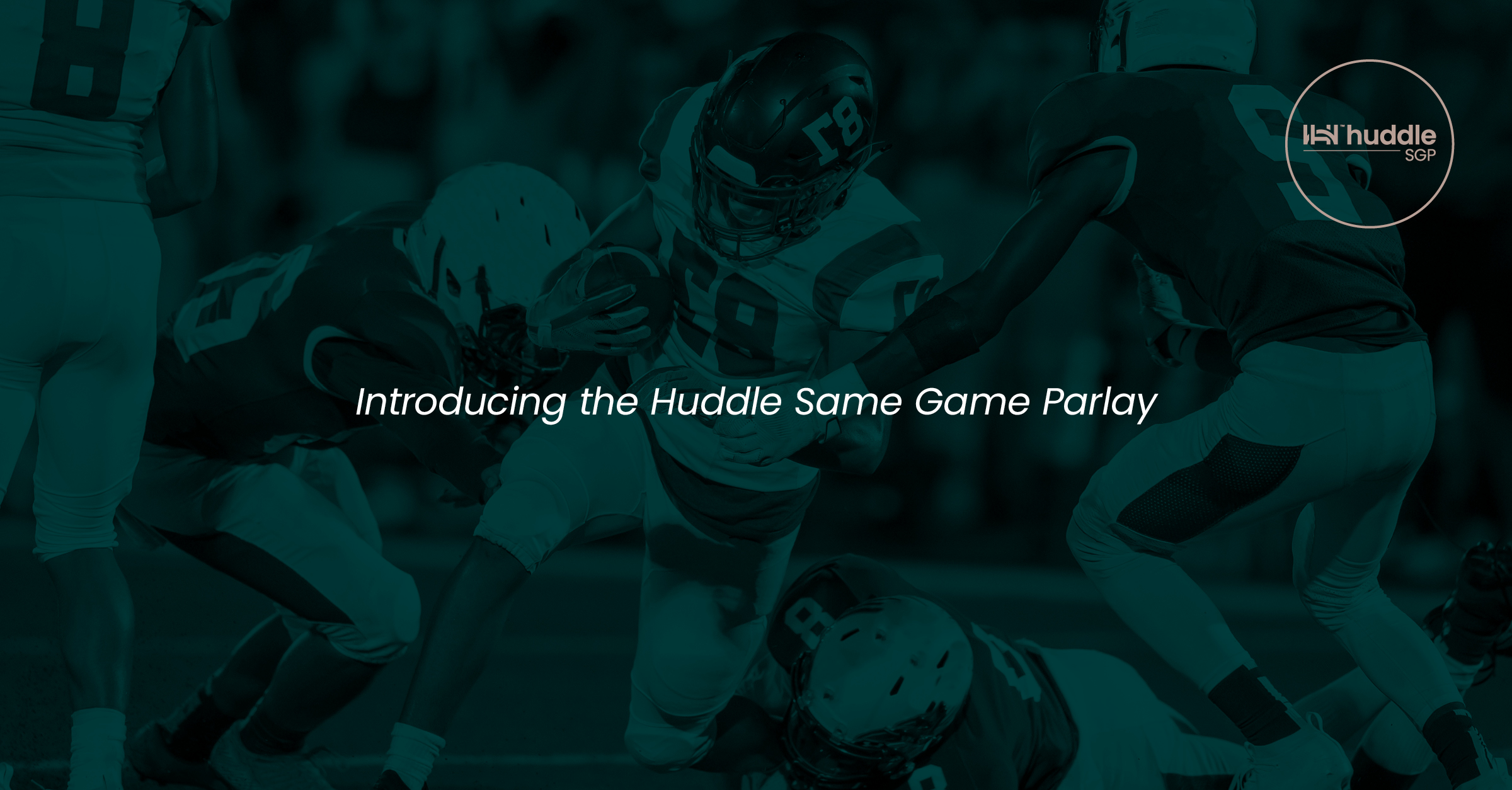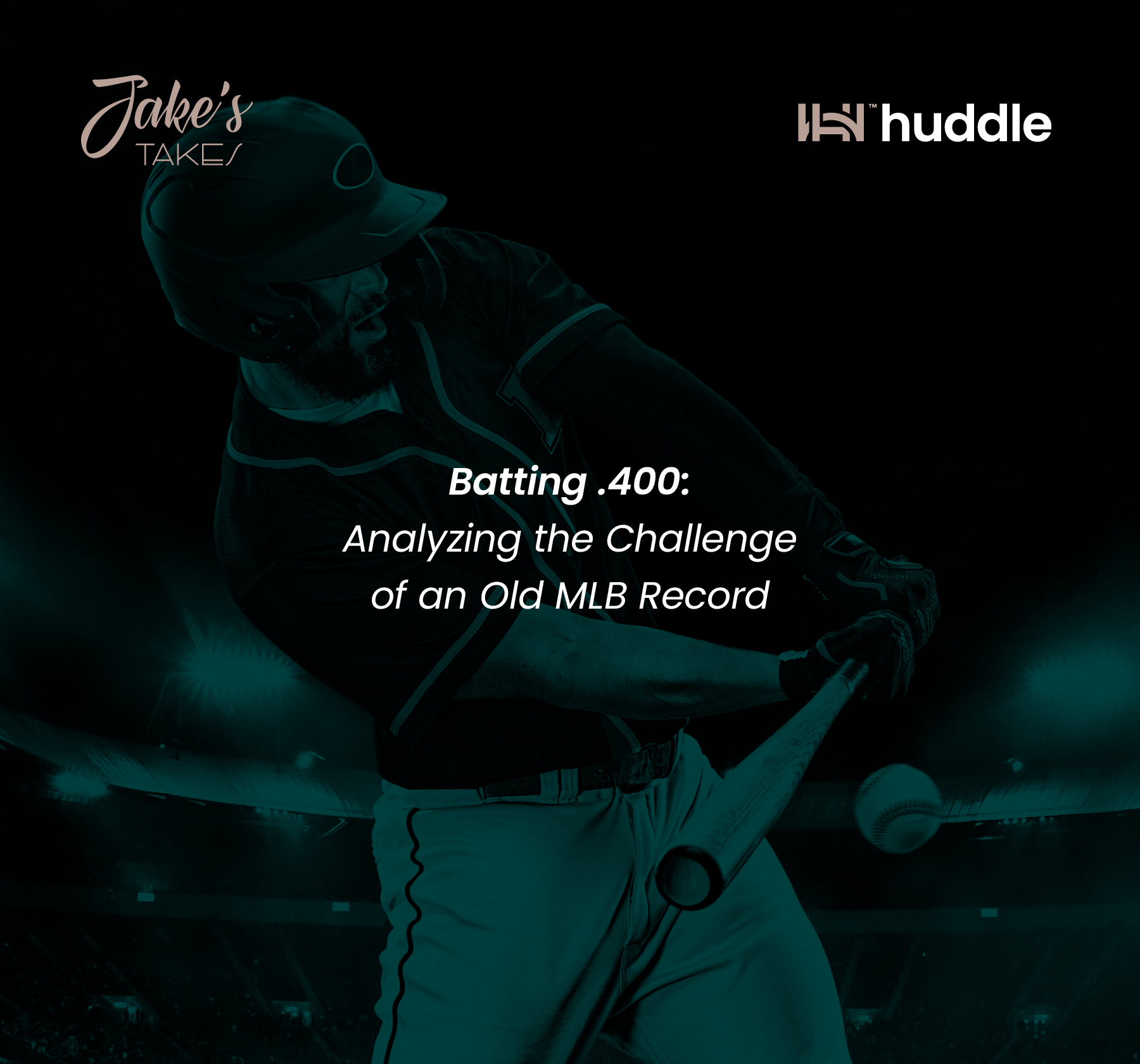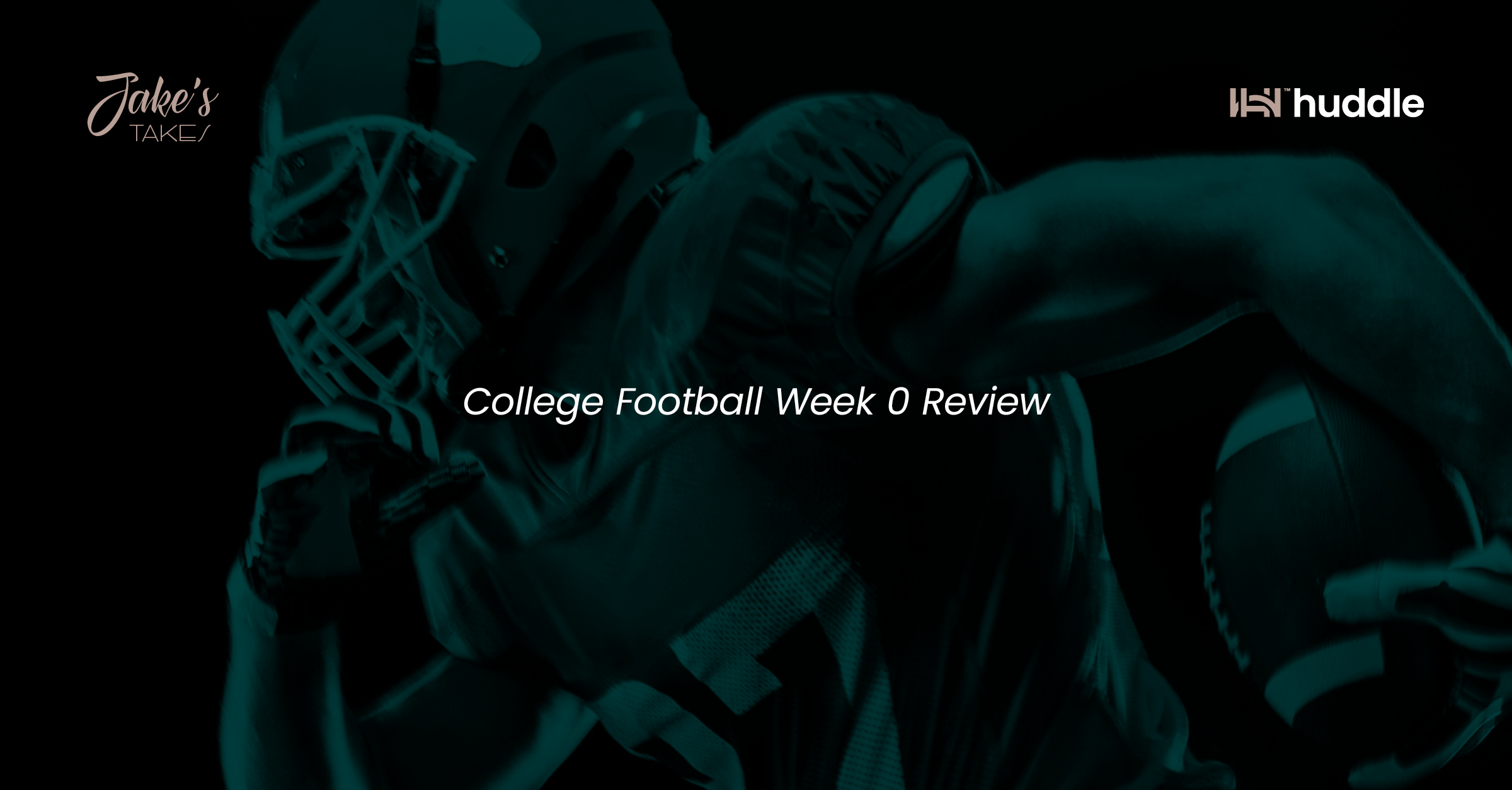
Jake’s Takes: Interceptions Increase Win Probability Percentage?
Blog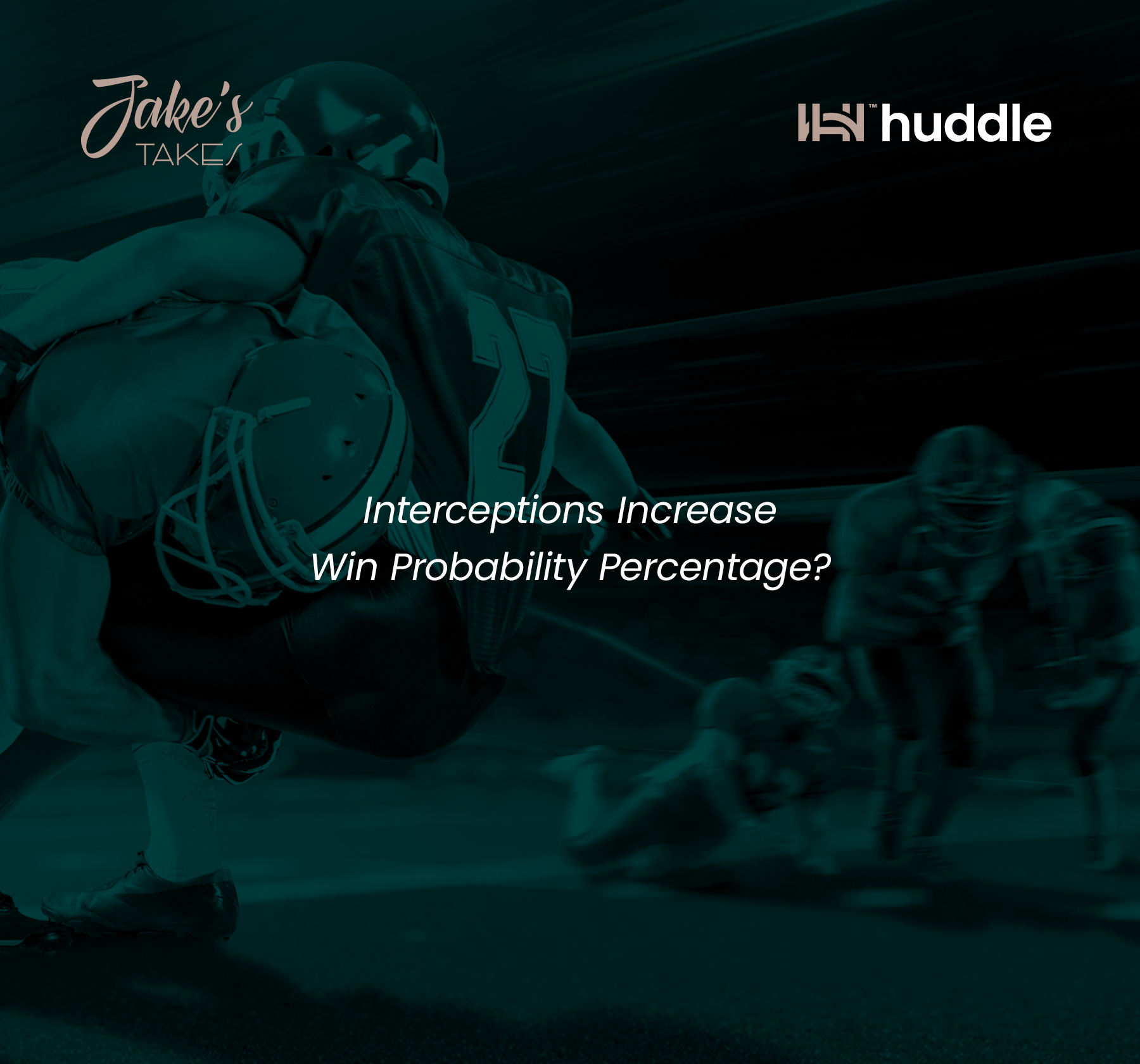
Jake’s Takes: Interceptions Increase Win Probability Percentage?
As the NFL season continues its seemingly torrid pace, we’re already near the halfway mark of the season. Week 7 saw some surprising games, like the Baltimore Ravens' utter obliteration of one of our “overachievers” from the prior week in the Detroit Lions. We also saw the Buffalo Bills lose to the New England Patriots bizarrely, and the San Francisco 49ers lost on Monday Night Football to an undermanned Minnesota Vikings team without Justin Jefferson.
Check out how Huddle is staying ahead of the market throughout the NBA Season. Learn more about our prop and micro-betting offering here
But the moment that perhaps elicited the most “whaaa?” from Graham or me occurred during the Cleveland Browns game against the Indianapolis Colts. On paper, this game was rather unexciting. Deshaun Watson came out early in the game with an injury, rendering this a matchup of two backup quarterbacks (P.J. Walker for Cleveland, Gardner Minshew for Indianapolis).
The game had somewhat of a flip-flop nature, which I found surprising given the caliber of the Browns defense and what I suspected to be the weak points of the Colts offense. Instead, Minshew threw for over 300 yards with 2 touchdowns and had 29 rushing yards and 2 touchdowns on the ground. The Colts found themselves leading 31-30 with 11:06 remaining in the game.
Per Huddle’s odds, Cleveland had a win probability of 50% at that point, as they were facing a 3rd and 16 on the IND 47-yard line. Had Cleveland’s third-down pass fallen incomplete (forcing a punt), Huddle would’ve lowered their win probability to 48%. Instead, P.J. Walker launched a deep ball that was intercepted by Colts defensive back Rodney Thomas II at the IND 2-yard line. Somewhat amazingly, Huddle increased the Browns' win probability by 2% points in that situation.
But wait! I bet you're confused. “I thought all interceptions were bad? How did Cleveland’s probability of winning increase?”
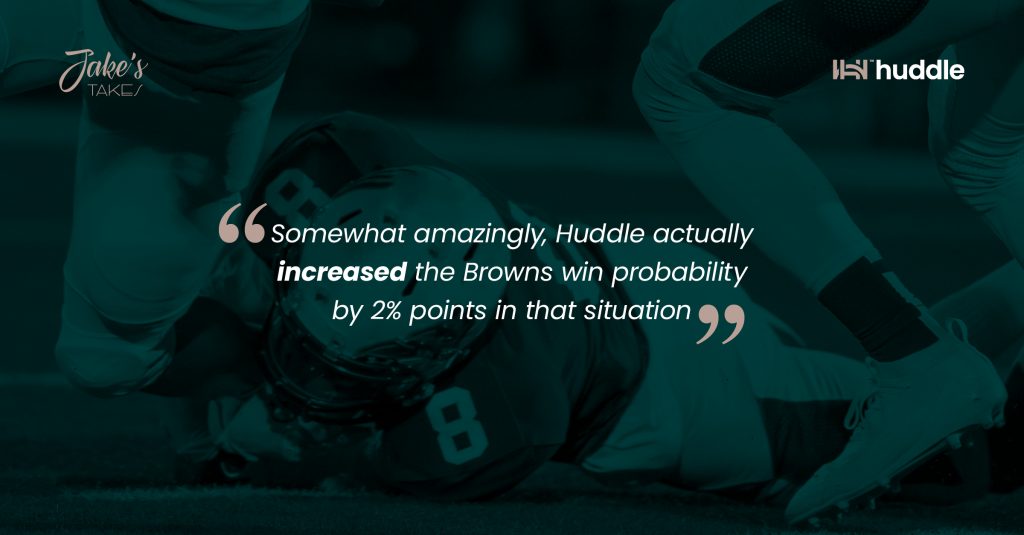
Per the model, if Cleveland had punted in that situation, IND would be more likely to have a better field position (the model predicted a better field position by about 5-10 yards). And the closer a team is to their end zone when starting possession, the less likely they are to achieve a first down. So what happened next?
The Colts ran the ball on three straight downs, accumulating only 5 total yards. They then punted, and the Browns responded with a 6-play drive resulting in a field goal for Cleveland to put them up 33-31. While the Colts ended up scoring on the next possession to go up 38-33 (and I would argue the Colts should’ve gone for 2 to at least increase their lead to 6 instead of 5), the Browns ultimately won the game on their final drive, which included two questionable penalties that went in their favor.
The moral of this story is that while, in the heat of the moment, you may wonder how your win probability could be increased with a seemingly negative play – there’s always a logical reason behind it. If the Browns had merely punted on 3rd and 16 and pinned the Colts on the 2-yard line, it would be viewed as an incredible play by the punter – perhaps we should give P.J. Walker some credit for his picture-perfect spot of his interception?
Don't miss out. Subscribe to our newsletter below and get key data points directly to your inbox all season long.

